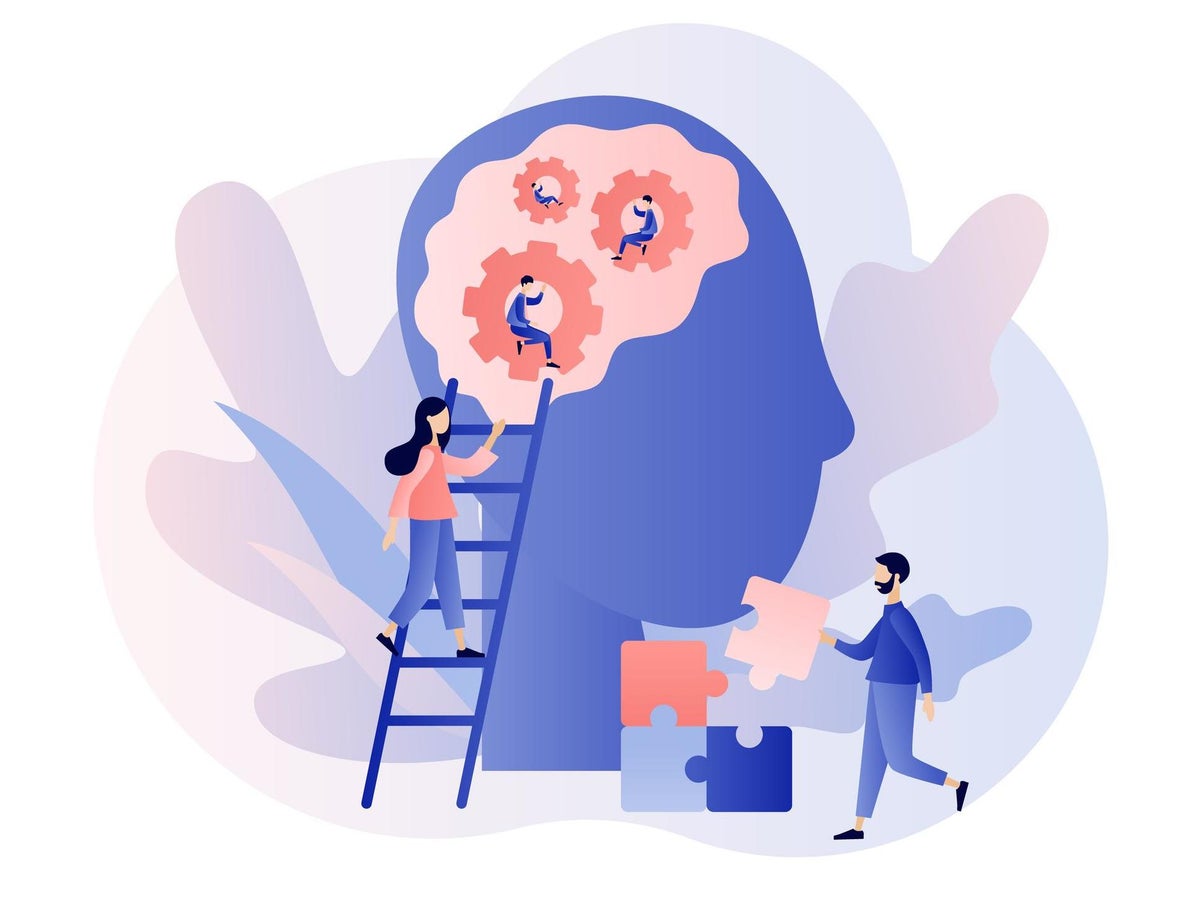The Relevance of Mental Health And Wellness: a Deep Study Therapy, Treatment, and Their Benefits
Mental health and wellness considerably shapes private health, influencing actions, emotions, and thoughts. Counseling and treatment act as crucial opportunities for healing and individual advancement. They provide organized assistance, helping individuals browse life's obstacles. Many stay uninformed of the details types of therapy offered and their one-of-a-kind advantages. Comprehending these facets is essential for anyone considering expert mental health support. What complies with may brighten paths to durability and satisfaction that lots of forget.
Understanding Mental Wellness and Its Influence
Although mental health and wellness is frequently forgotten, it plays a vital duty in total health and day-to-day functioning. It encompasses emotional, mental, and social aspects that influence just how individuals assume, really feel, and behave. A person's psychological health and wellness directly impacts their capacity to manage stress, associate with others, and make choices. Poor mental wellness can cause different problems, consisting of anxiousness, clinical depression, and trouble in maintaining relationships, all of which can hinder professional and individual growth.Furthermore, mental health has significant ramifications for physical wellness. Persistent tension and without treatment psychological problems can add to different physical conditions, such as heart problem and deteriorated immune responses. On the other hand, favorable mental health and wellness fosters durability, making it possible for people to handle life's difficulties effectively. Recognizing mental health's significance is essential for cultivating encouraging atmospheres that promote psychological well-being, consequently boosting the high quality of life for neighborhoods and people alike
The Different Kinds Of Therapy and Therapy
In the domain name of mental wellness, various therapy and therapy kinds accommodate varied needs. Specific therapy approaches concentrate on individual issues through individually sessions, while group treatment characteristics foster shared experiences and support amongst participants. Understanding these techniques is important for selecting the suitable treatment for various difficulties.
Individual Counseling Techniques
Countless specific therapy techniques exist, each created to resolve certain mental health issues and accommodate differing client needs. Cognitive Behavior Modification (CBT) concentrates on recognizing and altering unfavorable idea patterns, while Psychodynamic Therapy explores unconscious processes and previous experiences. Humanistic Treatment emphasizes individual development and self-actualization, promoting a helpful setting. Interpersonal Treatment (IPT) targets relationship problems and interaction patterns to boost emotional well-being. Additionally, Acceptance and Dedication Therapy (ACT) motivates clients to approve their thoughts and feelings while devoting to individual values. Each approach provides one-of-a-kind methods and ideologies, permitting specialists to customize their methods to the individual, thereby enhancing the restorative experience and promoting mental health and wellness recovery.
Group Therapy Dynamics
Group treatment characteristics include numerous restorative methods that utilize the power of shared experiences and social partnerships. This type of treatment usually includes diverse teams, promoting a risk-free environment for participants to express thoughts and sensations. Key kinds of group treatment consist of support system, which give emotional assistance; process-oriented groups, focusing on social communications; and psychoeducational teams, focused on giving knowledge concerning psychological health and wellness issues. The characteristics within these groups can boost self-awareness, as participants typically assess their behaviors in regard to others. Furthermore, team therapy promotes a feeling of belonging, reducing sensations of seclusion. Via shared narratives and cumulative analytic, participants can develop coping strategies and gain understandings, inevitably contributing to private development and recovery.
The Function of Therapy in Mental Health
Therapy plays an essential function in mental wellness by providing various methods tailored to individual needs. These techniques provide specialist assistance that can lead to considerable enhancements in emotional well-being. Comprehending the various sorts of counseling can assist individuals make educated decisions concerning their mental health and wellness care.
:max_bytes(150000):strip_icc()/GettyImages-554392669-56a6c32d3df78cf7728feb74.jpg)
Kinds Of Counseling Approaches
While numerous counseling approaches exist, each offers special methods and understandings right into psychological health treatment - Couples Therapy. Amongst the most famous are cognitive-behavioral treatment (CBT), which concentrates on modifying unfavorable idea patterns; psychodynamic treatment, which checks out unconscious processes and childhood experiences; and humanistic strategies, emphasizing personal development and self-actualization. Additionally, solution-focused short treatment prioritizes locating remedies in the present instead of delving right into troubles. Group therapy fosters community and shared experiences, while family treatment addresses relational dynamics within familial frameworks. Each method satisfies different needs, aligning with individual preferences, concerns, and healing goals. Understanding these approaches aids clients make notified options concerning their mental health and wellness journey and advertises efficient treatment tailored to their one-of-a-kind scenarios
Benefits of Expert Support
Various individuals benefit from expert guidance in handling their mental health obstacles. Therapy uses a secure space for clients to explore their ideas and feelings without judgment. This therapeutic environment fosters self-awareness, allowing people to recognize patterns in their habits and establish my latest blog post much healthier coping approaches. Expert assistance likewise offers accessibility to evidence-based methods that can relieve signs and symptoms of stress and anxiety, clinical depression, and other mental wellness concerns. Furthermore, therapists can assist in setting reasonable goals and offer support in accomplishing them, enhancing general health. The joint relationship between counselor and client is necessary, as it advertises accountability and motivates personal growth. Ultimately, specialist support plays a crucial role in steering mental health journeys, leading to improved psychological resilience and life fulfillment.
Advantages of Treatment: Healing and Development

Exactly how to Choose the Right Specialist or Therapist
Exactly how can one navigate the often overwhelming procedure of choosing the right therapist or counselor? Determining individual needs is necessary; people need to consider their particular concerns, whether depression, partnership, or anxiousness difficulties. It is valuable to research different restorative methods, such as cognitive-behavioral therapy or psychodynamic treatment, to discover an appropriate match.Next, possible customers need to look for references from relied on resources or utilize on-line directory sites. It is crucial to review specialists' qualifications, including their education and learning, licensing, and areas of expertise. Arranging first examinations can assist evaluate compatibility, enabling individuals to assess interaction designs and individual comfort.Finally, logistical elements, such as location, accessibility, and charges, should additionally be thought about. By thoughtfully evaluating these components, one can make an educated decision, ultimately cultivating a restorative relationship that sustains psychological wellness and personal growth.
Getting Rid Of Stigma: Welcoming Mental Health And Wellness Support
While social attitudes towards mental health have progressed, stigma still offers a significant barrier for numerous seeking assistance. This stigma typically manifests as mistaken beliefs bordering mental disease, leading individuals to really feel pity or anxiety concerning their battles. Many individuals are reluctant to go after counseling or therapy due to bother with being evaluated or labeled. Conquering this stigma is fundamental for promoting an encouraging atmosphere where people can freely review their mental wellness needs.Communities and organizations play an essential role in this makeover by advertising awareness and education regarding psychological wellness issues. Efforts that highlight personal tales can humanize these experiences, motivating others to look for aid without fear. As acceptance grows, individuals might feel extra encouraged to welcome psychological health assistance, acknowledging it as a crucial element of total well-being. By taking down stigma, society can grow a culture of understanding, empathy, and proactive psychological health and wellness care.
Methods for Maintaining Mental Well-Being Outside of Treatment
Therapy provides beneficial assistance, maintaining mental health outside of sessions is similarly vital. Individuals can her response carry out a number of approaches to sustain their mental health. Routine physical activity plays a crucial function, as workout promotes the launch of endorphins, which improve state of mind. Furthermore, a well balanced diet regimen rich in nutrients can significantly influence psychological security and power levels.Practicing mindfulness and meditation aids individuals take care of stress and develop higher self-awareness. Establishing a consistent sleep routine is likewise essential, as high quality remainder is critical for cognitive function and psychological regulation.Engaging in social activities cultivates link and minimizes feelings of seclusion. Pursuing pastimes or passions can offer a creative electrical outlet and boost self-confidence. Setting realistic objectives and exercising self-compassion allows individuals to grow durability. By incorporating these strategies into day-to-day live, individuals can effectively support their mental health beyond treatment sessions.
Frequently Asked Inquiries

Just How Can I Tell if I Need Treatment?

Figuring out the need for treatment typically involves identifying persistent feelings of despair, anxiousness, or overwhelming stress. If everyday working comes to be difficult or coping systems fail, seeking professional support might be an advantageous progression.
What Should I Expect in My First Therapy Session?
In the very first treatment session, people can anticipate an intro, conversation of their factors for looking for aid, and a summary of the therapist's method, developing a foundation for future conversations and establishing comfort in the restorative room.
Are Online Treatment Procedure as Effective as In-Person Ones?
Research indicates that online therapy sessions can be as effective as in-person ones. Elements such as the therapist's certifications, client interaction, and the healing partnership substantially affect results, despite the tool made use of.
Can Therapy Help With Partnership Problems?
Therapy can assist individuals in dealing with connection concerns by giving devices for interaction, comprehending feelings, and settling disputes. Mental Health Resources. It advertises much healthier dynamics and motivates personal growth, ultimately fostering stronger, more meeting connections between partners
How Much Time Does Therapy Usually Last?
Therapy period varies substantially based upon private needs and objectives. Usually, sessions may last from a couple of weeks to a number of months, with some individuals participating in recurring therapy to deal with long-lasting concerns and individual development. Cognitive Behavioral Therapy (CBT) concentrates on recognizing and changing unfavorable idea patterns, while Psychodynamic Treatment checks out unconscious procedures and previous experiences. Secret types of team therapy include assistance groups, which supply emotional support; process-oriented teams, focusing on social interactions; and psychoeducational groups, aimed at giving knowledge about psychological health and wellness problems. Among the most prominent are cognitive-behavioral treatment (CBT), which focuses on modifying negative idea patterns; psychodynamic treatment, which explores subconscious procedures and youth experiences; and humanistic techniques, highlighting individual growth and self-actualization. Web Site Team treatment promotes area and shared experiences, while family treatment addresses relational characteristics within domestic structures. It is valuable to research study various restorative strategies, such as cognitive-behavioral therapy or psychodynamic therapy, to find a suitable match.Next, possible clients need to look for recommendations from relied on sources or use online directories.